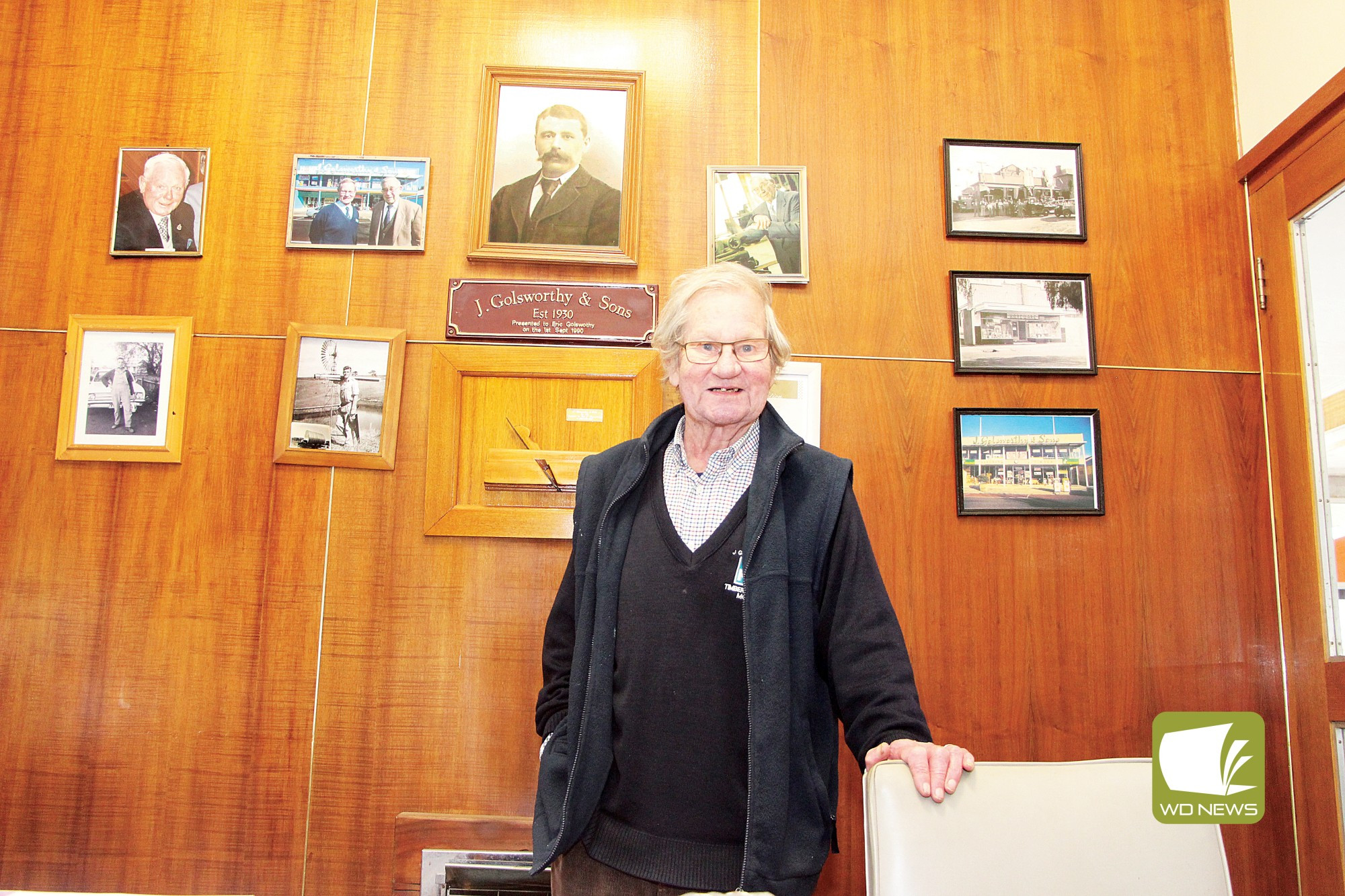General News
12 July, 2023
Golsworthy reflects on 60 years
A LOT has changed over the 60 years Rod Golsworthy has worked for his iconic family business.

A LOT has changed over the 60 years Rod Golsworthy has worked for his iconic family business.
The family business was started by Rod’s grandfather (James), his then-20-year-old father Eric and uncle Earnest in 1930.
“Grandpa managed the shop and dad and uncle Ernie ran the construction side of things,” Mr Golsworthy said.
James, Ernest and Eric purchased A.C McDonald’s hardware, timber and plumbing business in 1930 for £2000, and rented the premises for £3 per week which included the use of the plant for 12 months with the option to purchase for £70.
“The original building, they had purchased operated next door, which today is the Op-shop,” Rod said.
“They started from there with only three employees.”
Golsworthy and Sons had opened the year after the Wall Street crash of 1929, as the economic impact of the Great Depression reached all nations around the globe.
The height of the Great Depression peaked for Australia in 1932, but the impacts lingered throughout the remainder of the decade, but throughout this time the business experienced a growth in the construction of weatherboard houses which sold for around £350.
Any economic reprieve would be short-lived, however, as September 1939 marked Australia’s involvement in the Second World War.
“Things were already quiet, as you can imagine, and then they were hit with the Second World War,” Mr Golsworthy said.
“During the war most of the staff enlisted in the armed forces, and only my grandfather and uncle were running the business with one lady, Ethal Lasker, working in the office.”
Golsworthy and Sons held on during periods of economic depression and world war, in part thanks to the versatility of the business as retailer with services in plumbing, construction and as millwright.
Having endured the more than 15 years of economic uncertainty and war, Golsworthy and Sons was headed for a period of economic boom.
World War Two ended in 1945; which brought back not only the workforce, but heightened demand for services and materials with the arrival of solider settlers to Mortlake and surrounds.
“Probably the best years were in the late 40s after the war through to the late 1970s when the solider settlement was being established,” Rod said.
“Young families were moving in to town and setting up their farms, and there was a lot of timber and materials required for building.
“Those were the boom years for the business, and at that stage there was probably 20-25 people employed.”
Between the materials used or the construction itself, there is little throughout Mortlake which does not have lingering Golsworthy fingerprints.
While business boomed, it was also again forced to endure loss after the deaths of founders Earnest (July 1952) and James (September 1958).
But in 1962 the current premises opened, moving to the larger space from the original neighbouring storefront, and just one year larger a young Rod Golsworthy would formally begin his career.
“I started work after I left school in 1963,” he said.
“I started off doing a building apprenticeship before moving in to the hardware side of things.”
The 1970s would present a period of great professional and personal success for Rod.
In 1971 he married Betty Fischmann and two years later the coupl welcomed their son, James.
In 1975, Rod was appointed company manager, and Betty would also join the business.
The period of economic boom would soon subside, with the growth of Mortlake becoming less sharp and the loss of services presenting a new wave of challenges.
“The town has changed a lot since then,” Rod said.
“In those boom years there was three banks in the town and about five motor dealerships – now we don’t have any of that.
“Unfortunately, the town is declining; now we’ve got no banks, no newsagent, which means people have to go out of town for work, and we see people doing their shopping when they’re out of town, which takes money out of Mortlake.
“It makes it harder for the other businesses to survive, and it’s getting tougher and tougher.”
Rod acknowledged the family business “can’t go on forever”.
“We’ve got one son who has his own business, and the day will come when we put the business on the market and sell it,” he said.
“We try to build our business on service, and hopefully we’ve got a good relationship with our customers which keeps them coming back.
“I like to think we’re well respected in the community, there’s families around I’ve been dealing with personally for three generations.”
